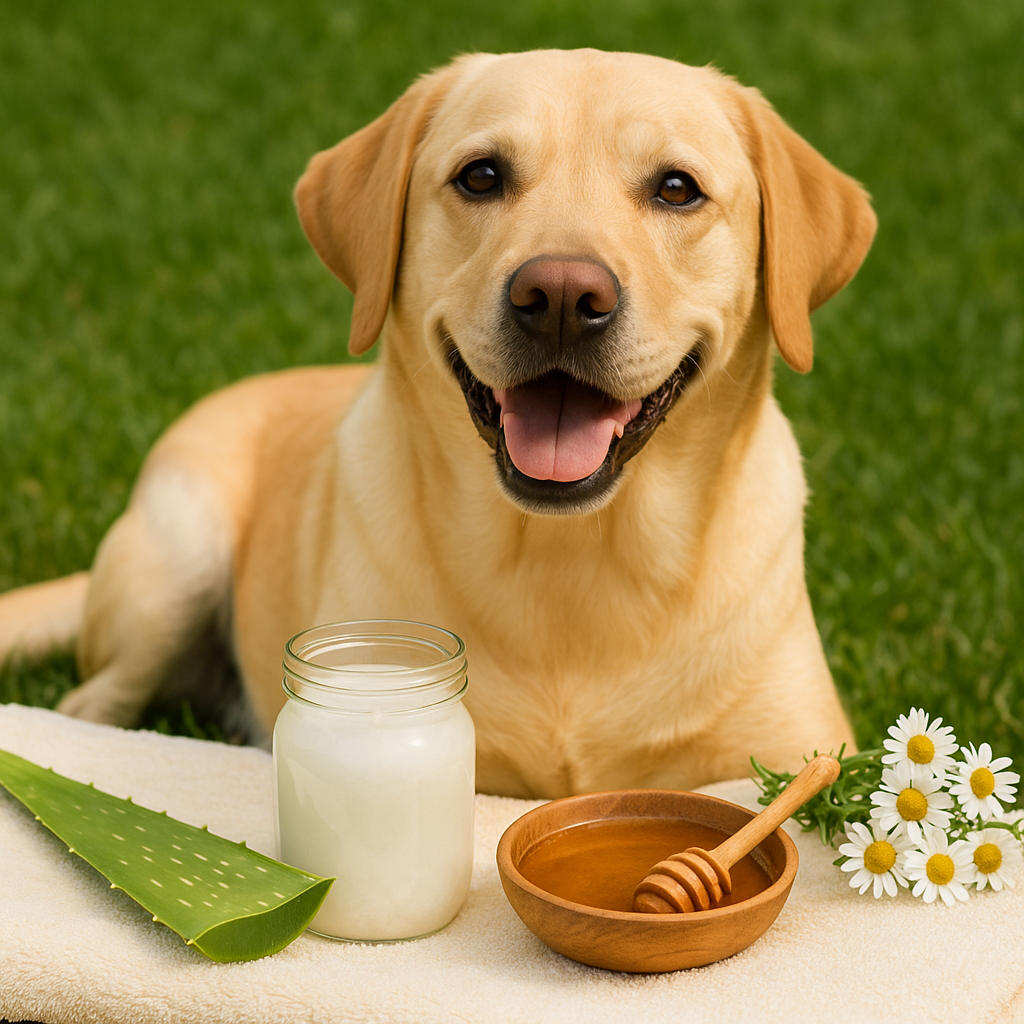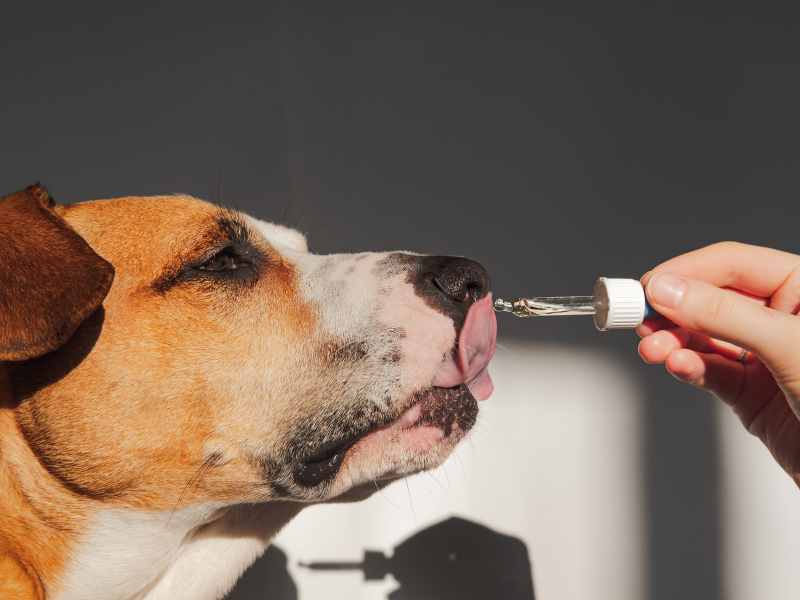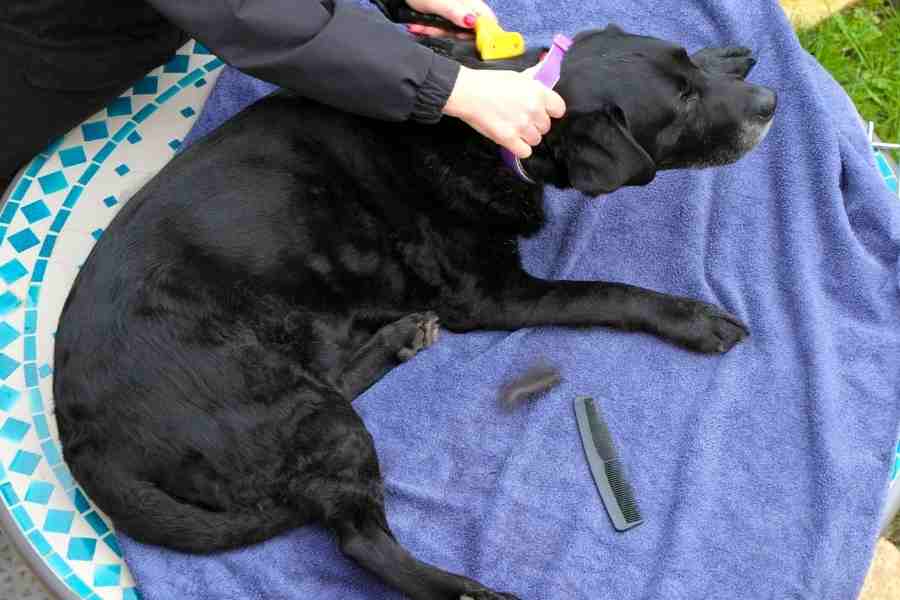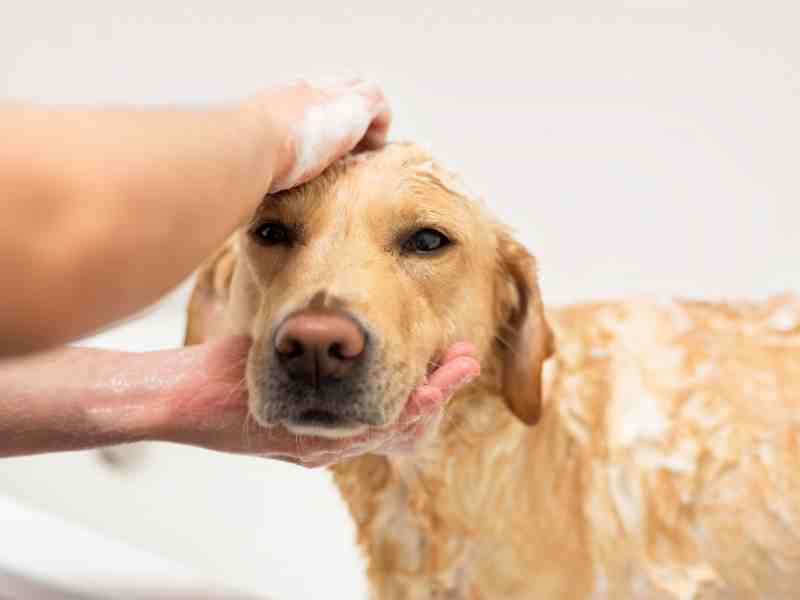TL;DR: Pyoderma is a common skin infection in dogs that causes itching, redness, and pustules. Instead of harsh chemicals, you can treat it safely at home with natural remedies like aloe vera, coconut oil, and turmeric. These gentle noptions help soothe your dog’s skin, fight bacteria, and speed up healing—naturally!
Understanding Pyoderma
Let’s start with the basics—what exactly is pyoderma?

Pyoderma is a fancy word for a bacterial skin infection that can make your dog’s skin red, itchy, and downright uncomfortable. Think of it as your pup’s way of saying, “Hey, something’s irritating my skin, and I need some help!”
Common symptoms to watch for include:
- Redness and swelling
- Itchy or flaky patches
- Pustules (those little pus-filled bumps—yuck, but important to spot!)
- Hair loss around the affected areas
- That telltale “doggy smell” that just won’t quit
Sometimes, pyoderma shows up after an allergic reaction, a bug bite, or even a small scratch that gets infected. Dogs with sensitive skin or allergies are especially prone to it.
Now, if you’re a Lab parent like me, listen up—Labrador Retrievers are one of the breeds most likely to get pyoderma. Their love for water (and rolling in anything muddy!) can leave their skin moist, which bacteria absolutely adore. Other breeds like Bulldogs, German Shepherds, and Golden Retrievers also tend to battle it more often.
The good news? Once you know what to look for, you can jump in early with gentle, natural remedies before things get worse.
Benefits of Natural Remedies
When it comes to treating your dog’s skin, gentle is always better. Natural remedies can work wonders—especially if your pup has sensitive skin (looking at you, Max!).
Most over-the-counter creams and medicated shampoos do the job, sure, but they can also come with a laundry list of side effects—dryness, irritation, or that dreaded “burning” feeling that makes your poor dog scratch even more. No thanks!
Natural solutions, on the other hand, are packed with skin-loving goodness. Ingredients like coconut oil, aloe vera, and chamomile don’t just fight bacteria—they soothe, moisturize, and help the skin heal itself. Plus, they’re gentle enough for daily use and less likely to mess with your dog’s natural oils or cause allergic reactions.
Think of it this way: you wouldn’t wash your face with harsh chemicals every day, right? Your pup deserves that same level of care and comfort.
Top 10 Natural Remedies for Pyoderma in Dogs
Alright, here’s the good stuff—the natural, safe, and effective remedies that can help your dog’s skin heal without harsh chemicals. These are tried-and-true favorites that soothe irritation, fight infection, and help your pup feel comfy again.
Here you´ll find the 5 best Anti-Itch Shampoos
1. Aloe Vera Gel
Good old aloe vera! This green wonder is packed with cooling, anti-inflammatory goodness. Just scoop a bit of pure aloe vera gel (make sure it’s plain, no additives) and gently apply it to the affected area. It helps calm redness and promotes healing—like a spa day for your dog’s skin!
2. Coconut Oil
Coconut oil is a dog parent’s secret weapon. It’s naturally antibacterial, antifungal, and super moisturizing. Warm a little between your hands and rub it on the irritated spots, or mix a teaspoon into your dog’s food for a healthy skin boost from the inside out.
3. Apple Cider Vinegar Spray
This one’s a natural disinfectant—but remember, dilution is key! Mix one part apple cider vinegar with two parts water, pour it into a spray bottle, and lightly mist your dog’s skin. Avoid open wounds (ouch!). It helps balance skin pH and keeps bacteria at bay.

4. Oatmeal Baths
Nothing beats an oatmeal bath for soothing itchy skin. Grind plain oatmeal into a fine powder, sprinkle it into warm bathwater, and let your pup soak for 10–15 minutes. Oatmeal helps reduce inflammation and gives instant relief from that constant scratching.
5. Turmeric Paste
Turmeric isn’t just for curry—it’s an anti-inflammatory powerhouse! Mix turmeric powder with a bit of coconut oil or water to make a thick paste, then dab it gently on the affected spots. It can stain (so maybe skip the white towels), but it’s fantastic for calming flare-ups.
6. Chamomile Tea Compresses
Brew a few bags of chamomile tea, let them cool, and place them on irritated skin. The natural soothing and antibacterial properties help reduce itching and redness. It’s like a calming tea break—for your dog!
7. Epsom Salt Soaks
If your pup will tolerate it, an Epsom salt soak can help reduce swelling and draw out infection. Dissolve about half a cup of Epsom salt in a small basin of warm water, and let your dog’s paws or affected area soak for 5–10 minutes. Always rinse and pat dry afterward.
8. Honey Applications
Nature’s sweet healer! Apply a thin layer of raw or Manuka honey directly to small wounds or sores. Honey’s natural antibacterial properties help prevent infection and speed up healing—plus, it creates a protective barrier over the skin.
9. Essential Oils (Lavender & Tea Tree)
Used correctly, essential oils can be powerful skin soothers. Mix a few drops of lavender or tea tree oil with a tablespoon of carrier oil (like coconut or olive oil) before applying. Never use them undiluted—they’re potent stuff! Lavender calms irritation, while tea tree helps fight bacteria.
10. Dietary Adjustments
Healthy skin starts from within! Add foods rich in omega-3s (like salmon or flaxseed oil), vitamin E, and antioxidants to your dog’s diet. A strong immune system helps fight off infections and keeps that coat shiny and smooth.
Precautions When Using Natural Remedies
Before you grab your coconut oil and go full DIY, a quick word of caution! Natural doesn’t always mean risk-free, especially since every dog’s skin reacts a little differently.
- Check with your vet first. Even gentle remedies can interfere with medications or specific skin conditions.
- Do a patch test. Try any new remedy on a small area first to make sure your pup doesn’t react negatively.
- Avoid open wounds. Some ingredients (like apple cider vinegar or essential oils) can sting or cause irritation if applied to broken skin.
- Watch for changes. If the infection worsens, spreads, or your dog seems uncomfortable, it’s time to call the vet.
Healing with Heart (and a Little Nature Magic)
So there you have it—ten simple, natural ways to help your pup kick pyoderma to the curb! From soothing aloe vera to golden turmeric paste, these gentle remedies can bring real relief without the harsh side effects of chemical treatments.
The trick is to catch it early, stay consistent, and keep an eye on how your dog’s skin responds. Remember, every dog is unique—what works wonders for one might not be perfect for another (just ask Max and Molly—they’re total opposites!).
And hey, if things don’t seem to improve or the infection keeps coming back, don’t hesitate to loop in your vet. Natural care and professional guidance make the best dream team for a happy, healthy pup.
Here’s to less itching, more tail wags, and plenty of comfy snuggles ahead











